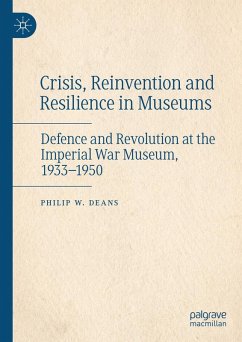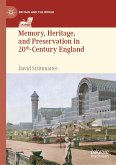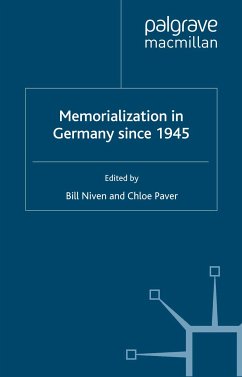"With multiple crises unfolding daily around the world, Philip W. Deans provides the reader with an unlikely source of reinvention and resilience - a museum. Deans' work is disciplined, thorough and meticulous, and his message rings with crystal clear clarity - a museum's sustained effectiveness and popularity depends upon its willingness and ability to change. For all organizations, nothing is so simple or profound. If you care about the future of museums, read this book."
-Robert R. Janes, University of Leicester, UK
"An excellent and fascinating study on the Imperial War Museum at a crisis point in its history. Built on strong theoretical foundations, this book offers new insights not only into the political, public, and institutional treatment of war in peace and conflict, but also into how museums today can survive crisis. It is well worth reading."
-Emma Cunliffe, Newcastle University, UK
This book explores museum crises. Through an investigation into the experience of the Imperial War Museum during the Second World War era, 1933-1950, it considers how crises disrupt museums and the contrasting defensive and revolutionary strategies which museums must adopt when mitigating crises. It is situated in a small but emergent literature concerning museums and crisis. Existing works mainly comprise contemporary studies on difficult museum experiences, predominantly financial difficulty, wherein the term crisis has been applied to describe an institution's general state of malaise. This book, by contrast, presents an innovative and groundbreaking historical case study on a single museum facing wholesale physical and ideological collapse, deploying original crisis concepts to analyse different critical situations and the pathology underlying them.
Philip W. Deans is currently an Associate Lecturer at Newcastle University, UK.
-Robert R. Janes, University of Leicester, UK
"An excellent and fascinating study on the Imperial War Museum at a crisis point in its history. Built on strong theoretical foundations, this book offers new insights not only into the political, public, and institutional treatment of war in peace and conflict, but also into how museums today can survive crisis. It is well worth reading."
-Emma Cunliffe, Newcastle University, UK
This book explores museum crises. Through an investigation into the experience of the Imperial War Museum during the Second World War era, 1933-1950, it considers how crises disrupt museums and the contrasting defensive and revolutionary strategies which museums must adopt when mitigating crises. It is situated in a small but emergent literature concerning museums and crisis. Existing works mainly comprise contemporary studies on difficult museum experiences, predominantly financial difficulty, wherein the term crisis has been applied to describe an institution's general state of malaise. This book, by contrast, presents an innovative and groundbreaking historical case study on a single museum facing wholesale physical and ideological collapse, deploying original crisis concepts to analyse different critical situations and the pathology underlying them.
Philip W. Deans is currently an Associate Lecturer at Newcastle University, UK.
Dieser Download kann aus rechtlichen Gründen nur mit Rechnungsadresse in A, B, BG, CY, CZ, D, DK, EW, E, FIN, F, GR, HR, H, IRL, I, LT, L, LR, M, NL, PL, P, R, S, SLO, SK ausgeliefert werden.









